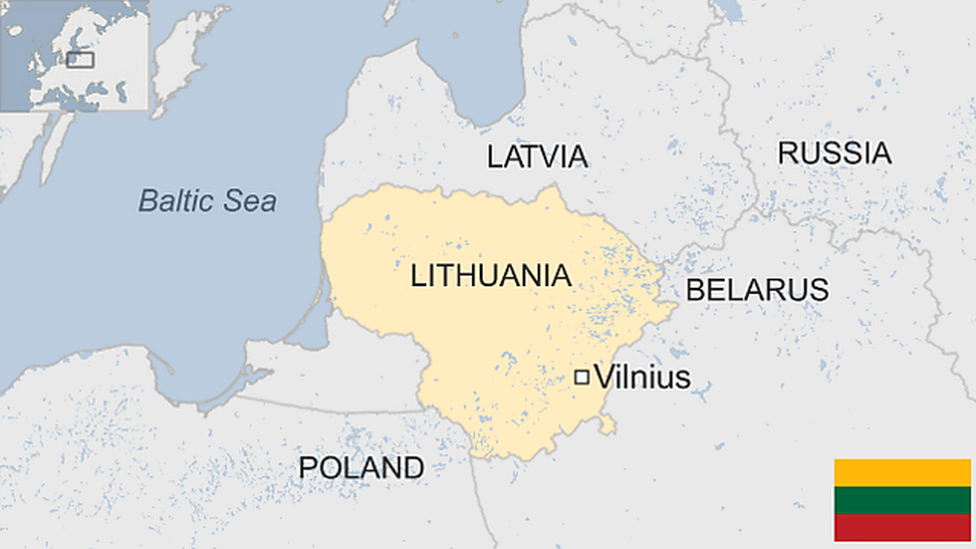Brexit sad but no tragedy, say Baltic countries
- Published
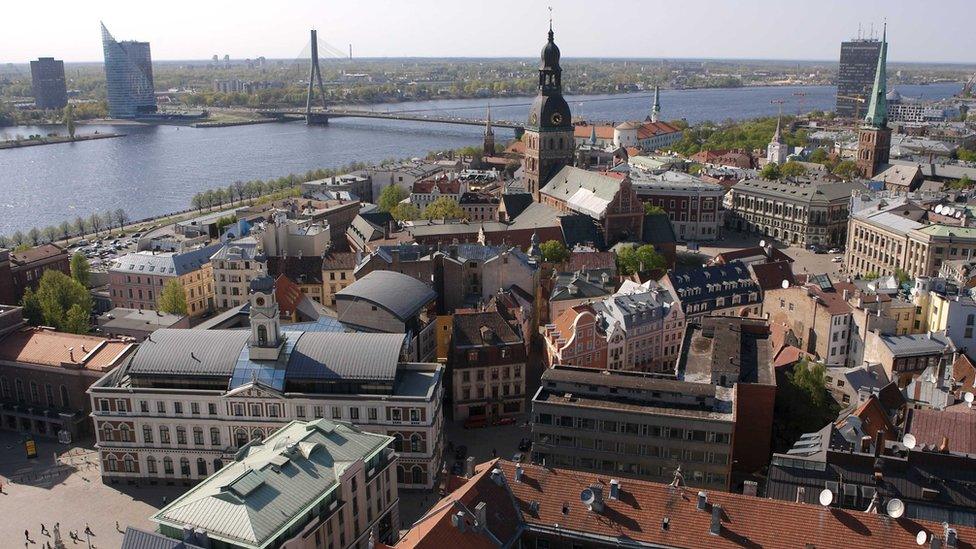
Baltic capitals like Latvia's Riga have reacted with regret to Britain's EU vote
Prime movers on social media in the Baltic republics of Estonia, Latvia and Lithuania have been generally saddened by the UK's vote to leave the European Union, but do not treat it as a crisis.
Some applaud Britain's decision as being in its national interest, but others fear that the only beneficiary will be Russia.
'Enough village idiots'
David Cameron was singled out for criticism, which echoed views heard across Europe that he had put the Conservative Party before the UK in calling the referendum.
Estonian Health and Labour Minister Jevgeny Ossinovski wrote in an English-language Facebook, external post that the UK prime minister had gambled on the European project.
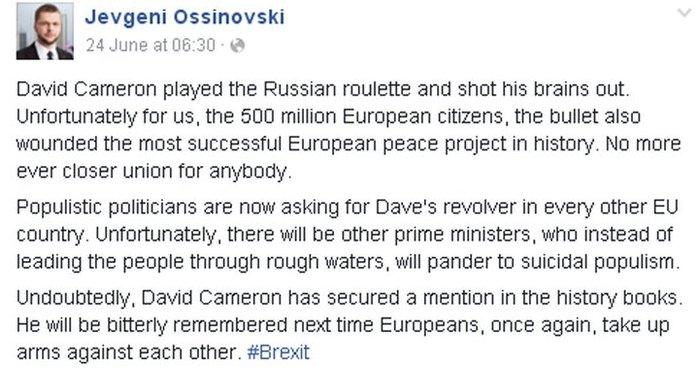
Parliament speaker Eiki Nestor, external also questioned the outgoing prime minister's statesmanship: "David Cameron never lied to British people when he urged them to vote, but he wasn't a statesman at all when he thought that the election results for the Conservatives are more important than fate of the UK and Europe".
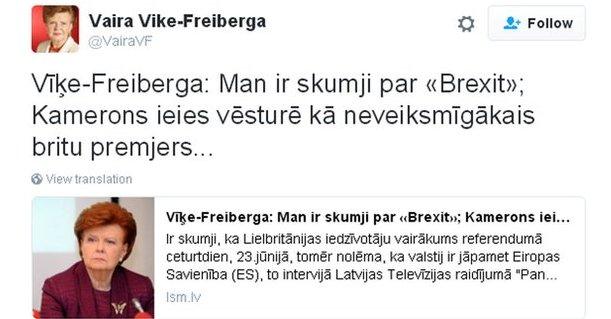
Latvian former President Vaira Vike-Freiberga tweeted that Mr Cameron would "go down in history as a less successful British prime minister".
And Lithuanian conservative politician and former foreign minister Audronius Azubalis saw the referendum and its result as an "example of political irresponsibility"
"With all my Britophilia, it is not hard for me to admit that there are more than enough village idiots there as well," popular Lithuanian journalist and comedian Algis Ramanauskas said in a Facebook post "liked" more than a 1,000 times.
'Integration maniacs'
Critical voices predominate, but Britain also has support on Baltic social media among Eurosceptics.
Estonian MEP Martin Helme hailed the Brexit vote on Facebook, external as a "joyous day for all friends of freedom and national independence. Land of Hope and Glory is like a second anthem for the British, so let's cheer them today".
Popular Lithuanian journalist Andrius Uzkalnis saw the vote as a rejection of "European integration maniacs". "The British are just tired of your preaching and voted to spite you. No worries, Trump will also get elected," he wrote.
Estonian political analyst Ahto Lobjakas questioned calls for the European Union to take a hard line in any negotiations with Britain, tweeting, external "Why does everyone seem to assume the EU's only option post-Brexit is the honour killing of the UK?"
Pro-Russian activist Aleksandr Gaponenko has seen an opportunity for Latvia to follow suit, announcing a plan to collect signatures for a petition.
"The powers that be will be so scared by the initiative that they will subject the signatories to police repression. The whole of Europe will condemn the repression, and this will be a step towards kicking Latvia out of the new EU," he predicted on Facebook.
'Kremlin trolls are happy'
Some commentators, especially in Latvia, see Russia as the Brexit winner.
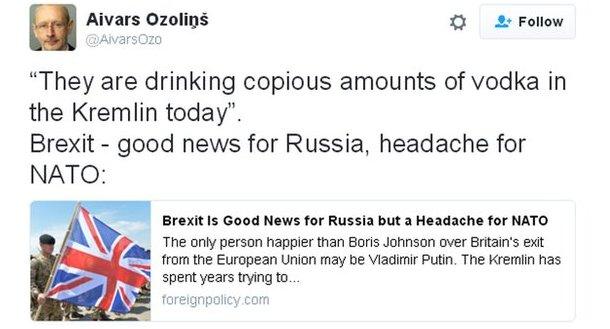
Latvian journalist Aivars Ozolins tweeted, external that they would be toasting the Brexit vote in the Kremlin with "copious amounts of vodka", while Foreign Minister Edgars Rinkevics retweeted, external an LTV News post of his own comment that "Russia is the winner of Brexit, because the EU will be weakened".
"As expected, all the Kremlin internet comment trolls are happy with British democracy," conservative former defence minister Rasa Jukneviciene noted, external wryly.
'No tragedy'
For many observers, there is a widespread feeling that the impact of the British vote should not be exaggerated, and that the focus among remaining EU countries should be on working together.
"Britain's exit from the EU is a real challenge to the community members. We must strengthen EU unity," Lithuanian President Dalia Grybauskaite posted on Facebook, external.
Lithuanian political observer Vladimiras Laucius, external said it was "sad to be left without the British", but "no tragedy, no need to whine".
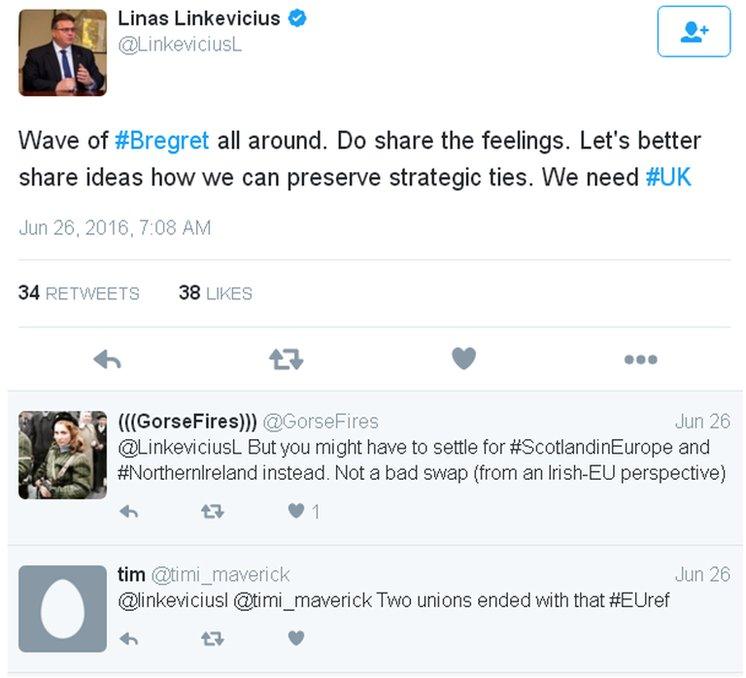
Lithuanian Foreign Minister Linas Linkevicius tweeted, external his "Bregret" while Latvian Prime Minister Maris Kucinskis vowed, external that his country would make "every effort to protect the interests of its nationals and its companies in Great Britain".
Latvian commentator Kaspars Berzins said the best way to maintain relations was to offer Latvian residence permits and citizenship to anyone with a UK passport on the day of the referendum.
BBC Monitoring reports and analyses news from TV, radio, web and print media around the world. You can follow BBC Monitoring on Twitter, external and Facebook, external.
- Published23 July 2024
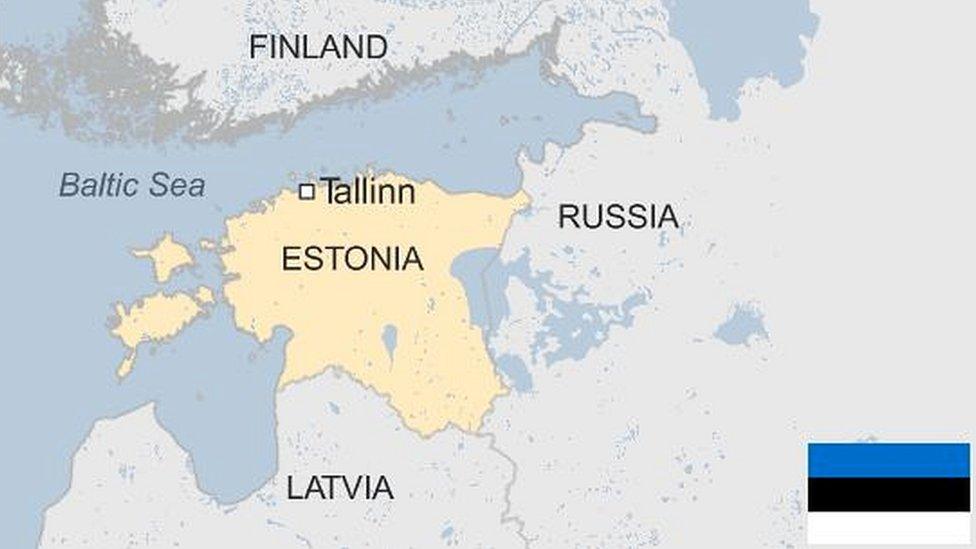
- Published22 August 2023
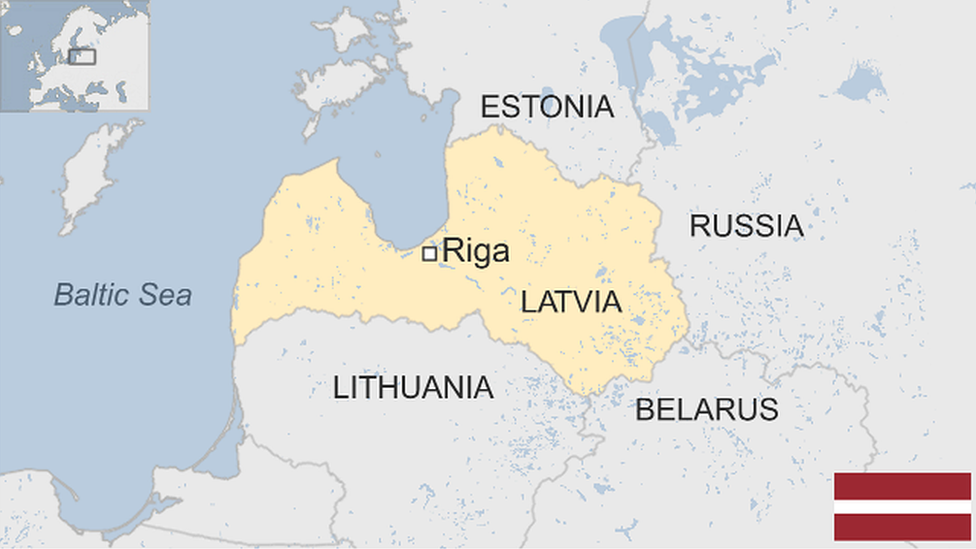
- Published25 November 2024
